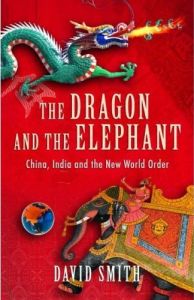Join getAbstract to access the summary!

Join getAbstract to access the summary!
David Smith
The Dragon and the Elephant
China, India and the New World Order
Profile Books, 2007
What's inside?
Concise, layman’s introduction to the economic history of India and China.
Recommendation
If you read only one book about the global economic role of India and China, this should be it. David Smith does an excellent job of sketching the economic history of these countries, analyzing the obstacles and impediments they subjected themselves to for most of the 20th century, explaining how they broke the socialist yoke and assessing their prospects for the future. The prose is generally clear and free of jargon. Smith presents ample documentation and footnotes. His treatment of political and economic figures is for the most part well balanced. This is very much a layman’s introduction to the economic emergence of India and China, but getAbstract finds that, unlike many recent books about the two nations, this one is intellectually respectable.
Summary
About the Author
David Smith has been the economics editor of the Sunday Times since 1989. He also writes a monthly column for Professional Investor, British Industry and The Manufacturer.


















Comment on this summary